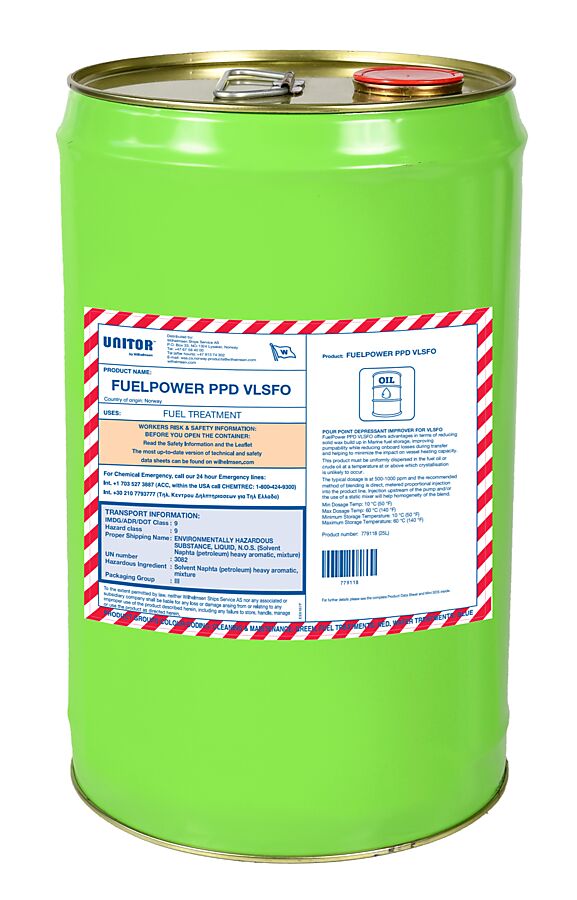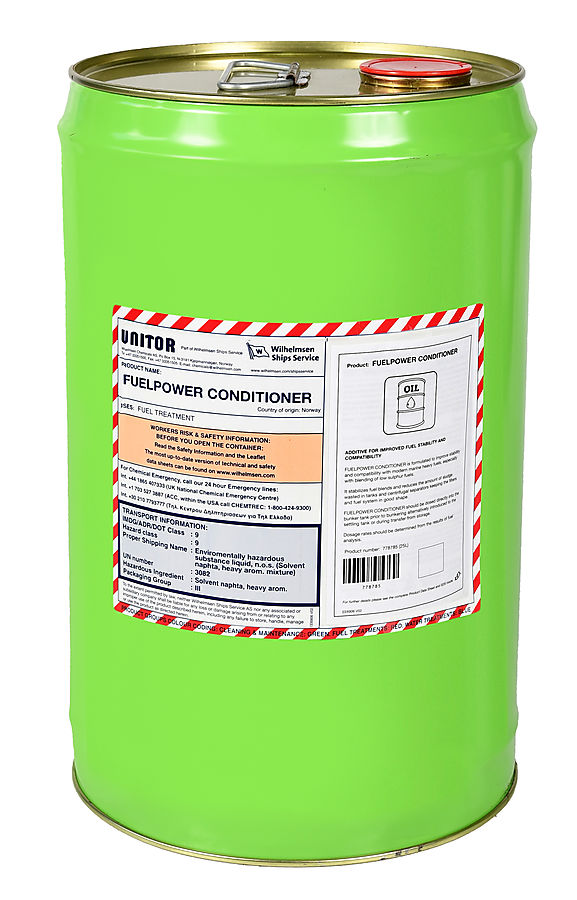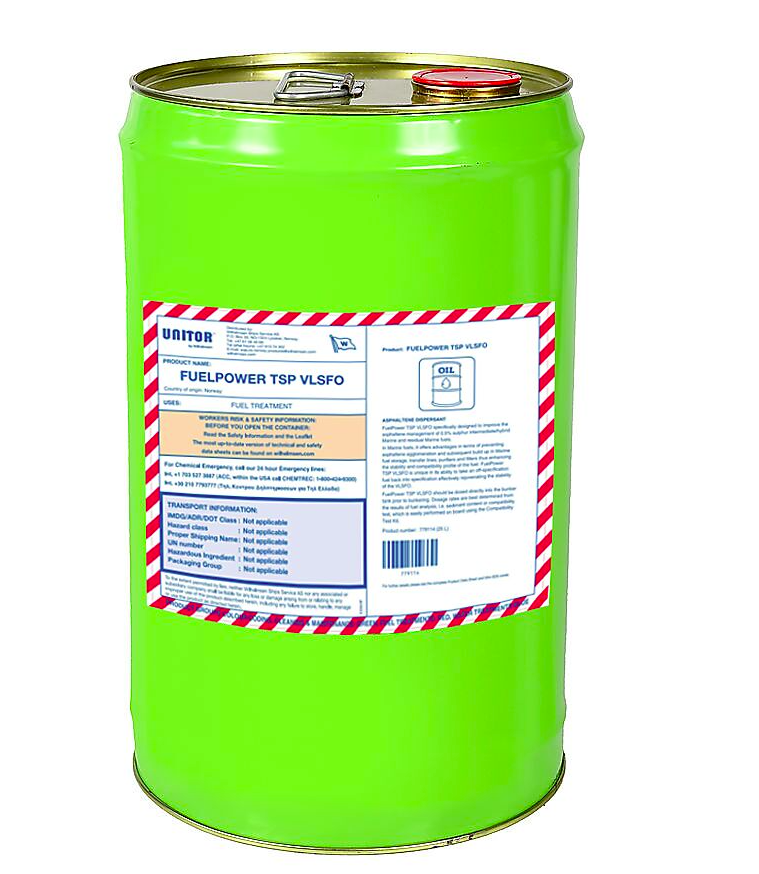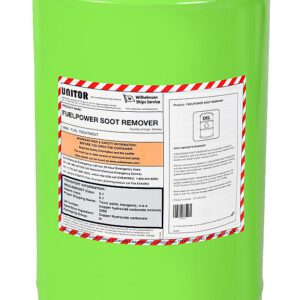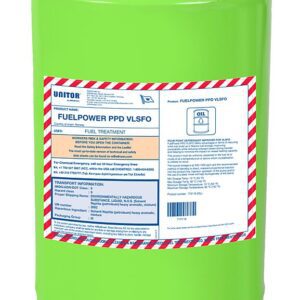FUELPOWER TSP VLSFO 25 LTR
Unitor™ FuelPower TSP VLSFO is a dispersant designed to improve the asphaltene management of 0.5% sulphur Marine fuels. In Marine fuels, it prevents asphaltene agglomeration and build up. A fuel that is out of specification in relation to Total Sediment Potential can be brought back into specification with Unitor™ FuelPower TSP VLSFO.
Description
Unitor™ FuelPower TSP VLSFO further facilitates the blending of low Sulphur fuels, offering blending flexibility from a varied range of distillate (paraffinic) and residual (aromatic) fuel streams resulting in homogeneous fuels.
Fuel stability and compatibility is an increasing problem with the new Very Low Sulfur Fuel Oils (VLSFO). Today we see many of these fuels having problem to be within specification on stability and compatibility. The Total Sediment Potential (TSP) sets the benchmark in the ISO 8217 for stability of the new 0,5% Sulfur VLSFO. Unitor™ FuelPower TSP VLSFO is unique in its ability to take an off-specification fuel back into specification effectively rejuvenating the stability of the VLSFO.
Features
- Easy to dose into VLSFO
- Stabilises the asphaltenes ensuring a stable and compatible fuel
- Can bring a fuel back into specification in relation to TSP
Easy to dose into VLSFO
Benefits
- Unitor™ FuelPower TSP VLSFO facilitates the blending of low sulfur fuels, especially VLSOF’s, offering flexibility in bunkering and blending.
- Offers flexibility in the blending of paraffinic and aromatic blending components for VLSFO.
- Fuels that are off specification in relation to total sediment potential (TSP) in ISO 8217 can be brought back into specification using Unitor™ FuelPower TSP VLSFO
Specification
General
| Invent Hazard Material (IMO/EU) classification | C-6 |
|---|
Physical properties
| Appearance | Clear dark brown liquid |
|---|---|
| Density [kg/dm3] | 0,99 |
| Flash Point [°C] | >60 |
| Form | Liquid |
Safety Data Sheet (SDS)
Directions for use
Ideally, Unitor™ FuelPower TSP VLSFO should be dosed directly into the bunker tank prior to bunkering. Dosage rates are best determined from the results of fuel analysis, i.e. sediment content or compatibility test which is easily performed on board using the Compatibility Test Kit.
| ASTM SPOT | 1 | 2 | 3 | 4 | 5 |
|---|---|---|---|---|---|
| DOSE RATE | N/A | 1:5000 (200 ppm) |
1:2000 (500 ppm) |
1:1000 (1000 ppm) |
1:500 (2000 ppm) |
| TSP level | Dosage (ppm) | Comment |
|---|---|---|
| <0,1 % | 1:5000 (200 ppm) | With a TSP out of specification it is important to have a good impact on the sludging and to be able to bring the fuel back into specification. |
| 0,1–0,2 | 1:2000 (500 ppm) | With a TSP out of specification it is important to have a good impact on the sludging and to be able to bring the fuel back into specification. |
| 0,2–0,3 | 1:1000 (1000 ppm) | With a TSP out of specification it is important to have a good impact on the sludging and to be able to bring the fuel back into specification. |
| 0,3-0,4 | 1:500 (2000 ppm) | A fuel with a TSP over 0,3 needs a higher dosage to impact the TSP. Even if the wanted specification cannot be reached the product will greatly improve the stability of the fuel. |
| 0,4+* | 1:333 (3000 ppm) | We do not recommend using these fuels as they can be difficult to bring back into specification. Even if the wanted specification cannot be reached the product will greatly improve the stability of the fuel. |
* Avoid using this fuel if possible.
If test results are not available, an initial dose of 1:1000 is recommended, and adjustments made, as necessary.
